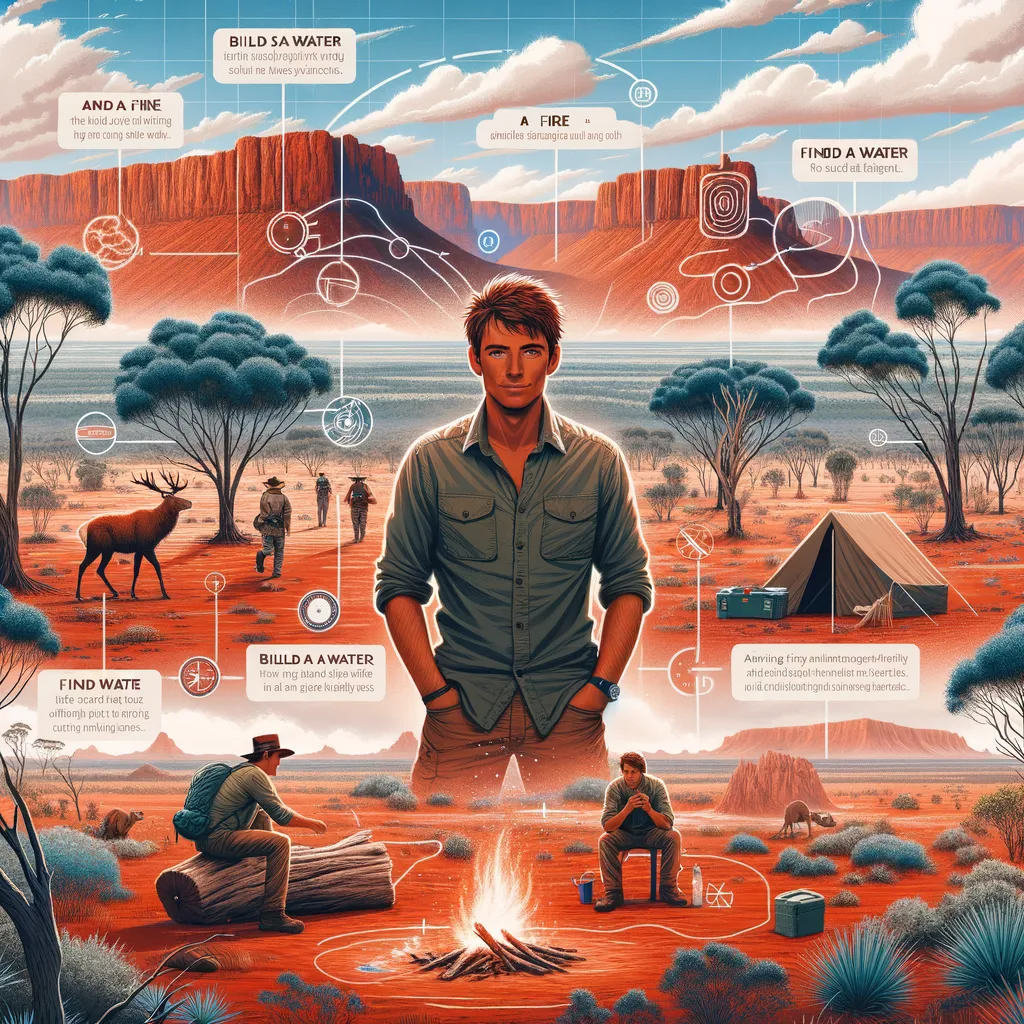Exploring the Outback: Tips for Surviving the Australian Wilderness
Welcome to our ultimate guide for parents planning an unforgettable adventure into the heart of Australia’s rugged outback! The Australian wilderness is a vast and beautiful landscape, offering families a unique opportunity to connect with nature, learn about indigenous cultures, and create lasting memories. However, venturing into the outback requires careful planning and preparation to ensure a safe and enjoyable experience for all. In this guide, we’ll share essential tips for surviving and thriving in the Australian wilderness, tailored specifically for parents. Whether you’re a seasoned outdoor enthusiast or a camping novice, our insights will help you prepare for your outback adventure.
First things first, let’s talk about camping. Camping in the Australian outback can be an incredibly rewarding experience, but it’s crucial to have the right gear and knowledge. For comprehensive camping gear recommendations, check out Camping essentials that will ensure your family is well-equipped for the journey. Additionally, for a broader understanding of camping and its benefits, Camping Information is an excellent resource that offers valuable insights for families embarking on their first outdoor adventure.
Understanding the Australian Outback
The outback is a term that refers to the vast, remote, arid areas of Australia. It’s a place of extreme temperatures, unique wildlife, and breathtaking landscapes. Understanding the environment you’ll be exploring is the first step in preparing for your adventure. The outback can be incredibly harsh and unforgiving, so it’s crucial to respect the natural elements and plan accordingly.
Planning Your Adventure
- Research: Start by researching the specific areas you wish to explore. Look into the climate, weather patterns, and any potential dangers. The more you know about the region, the better prepared you’ll be.
- Logistics: Consider how you’ll get there and where you’ll stay. Depending on the remoteness of your destination, you may need to plan for off-road driving and camping, or you might prefer staying in outback stations or eco-lodges.
- Safety Essentials: A first aid kit, plenty of water, sun protection, and emergency communication devices are non-negotiables. You’ll also need to pack sufficient food, clothing, and personal items for the duration of your stay.
- Leave No Trace: It’s vital to practice Leave No Trace principles to preserve the natural beauty and integrity of the outback. This means packing out all your garbage, minimizing campfire impacts, and respecting wildlife and local communities.
Key Survival Tips for the Outback
Surviving in the Australian outback requires knowledge, preparation, and respect for the land. Here are some key survival tips to keep in mind:
- Stay Hydrated: The arid climate of the outback can quickly lead to dehydration. Ensure you have ample water supply, and always carry water on your person during explorations.
- Be Wildlife Aware: Australia is home to some of the world’s most unique wildlife, including species that can be dangerous. Learn about the wildlife in the area you’ll be visiting and know how to respond safely to encounters.
- Communicate Your Plans: Always let someone know your itinerary and expected return time. In remote areas, the absence of mobile reception means you can’t rely on your phone to get help in an emergency.
- Navigate Wisely: GPS devices are useful, but knowing how to use a traditional compass and map is invaluable, especially in remote areas where technology might fail.
The Australian outback is a breathtakingly beautiful wilderness that offers families an unparalleled adventure. With the right preparation and a respectful approach to nature, your outback experience can be both safe and enriching.

Exploring the Outback: Essential Safety and Preparation Tips for Families
Embarking on an adventure through Australia’s outback is an exhilarating experience for families seeking to explore the untamed beauty of the wilderness. It offers the perfect setting for making lifelong memories while engaging with the rugged landscape. However, ensuring a safe journey requires meticulous planning and an understanding of the challenges posed by the remote outback. In this comprehensive guide, we dive into crucial tips tailored for parents gearing up for this grand adventure.
5 Things Parents Should Know About Preparing for the Outback
1. Thorough Preparation is Key
Before setting foot in the vast expanse of the Australian outback, precise preparation is paramount. This preparation involves gathering knowledge about the specific region you plan to explore, including its weather patterns, potential hazards, and the availability of resources. Such information is vital for planning your route, duration of stay, and daily activities. Adequately preparing your family for what to expect and how to face potential challenges is the foundation of a safe and enjoyable trip.
2. Packing Essentials
Packing for an outback adventure goes beyond the basics of camping gear. Essential items include a comprehensive first aid kit tailored to the needs of your family, sufficient water supplies to prevent dehydration, protective clothing to shield against the sun and insects, and suitable navigation tools. High-energy, non-perishable food items should also be on your packing list to sustain your energy levels during your exploration. The key is to pack light but smart, ensuring you have everything to meet your family’s needs without overburdening yourselves.
3. Understanding the Significance of Hydration
The Australian outback’s arid conditions can dehydrate anyone quickly. Parents should prioritize hydration, ensuring that every family member has access to and consumes adequate water throughout the day, even when they may not feel thirsty. Planning your water supply is critical, considering the limited sources available in remote areas. This includes calculating daily water needs for drinking, cooking, and hygiene, and ensuring you have the means to carry or access this essential resource during your travels.
4. Wildlife Awareness
Australia is renowned for its diverse and unique wildlife, some of which can pose risks to humans. Educating your family about the animals you might encounter and how to safely coexist with them during your visit is essential. This includes understanding how to store food securely, dispose of waste properly, and minimize your impact on the natural habitat. Additionally, knowing what to do in the unlikely event of a dangerous wildlife encounter can ensure your family’s safety.
5. Emergency Preparedness
In remote locations, getting help might not be as easy as dialing emergency services. Therefore, having a plan for emergencies is crucial. This involves carrying a reliable means of communication, such as satellite phones or personal locator beacons, especially where cell service is non-existent. Informing someone outside your group of your itinerary and expected return provides a safety net in case of unexpected situations. Furthermore, equipping yourself and your family with basic survival skills can make a significant difference in the face of adversity.
The allure of the Australian outback, with its vast landscapes and unique cultural experiences, calls for families ready for an adventure of a lifetime. However, the key to a successful and memorable experience lies in preparation, awareness, and respect for the natural environment and its challenges. By focusing on these five essential tips, parents can ensure that their journey into the outback is not only thrilling but also safe for the entire family.
Entering the Australian outback is a journey that transcends a simple vacation, offering profound lessons and experiences that can shape one’s perspective on nature, survival, and the importance of preparation. As you gear up for this adventure, remember that the safety, enjoyment, and educational value of your trip largely depend on your readiness to embrace the outback’s challenges and rewards. Happy planning, and may your family’s outback adventure be as enriching as it is exciting.
Disclaimer
The articles available via our website provide general information only and we strongly urge readers to exercise caution and conduct their own thorough research and fact-checking. The information presented should not be taken as absolute truth, and, to the maximum extent permitted by law, we will not be held liable for any inaccuracies or errors in the content. It is essential for individuals to independently verify and validate the information before making any decisions or taking any actions based on the articles.


